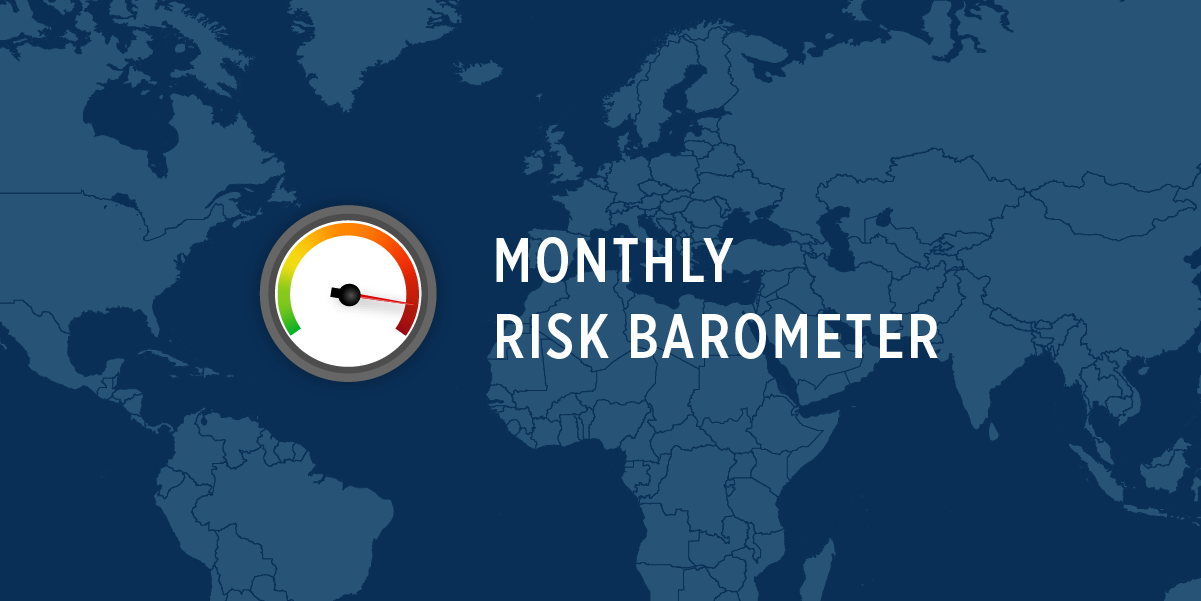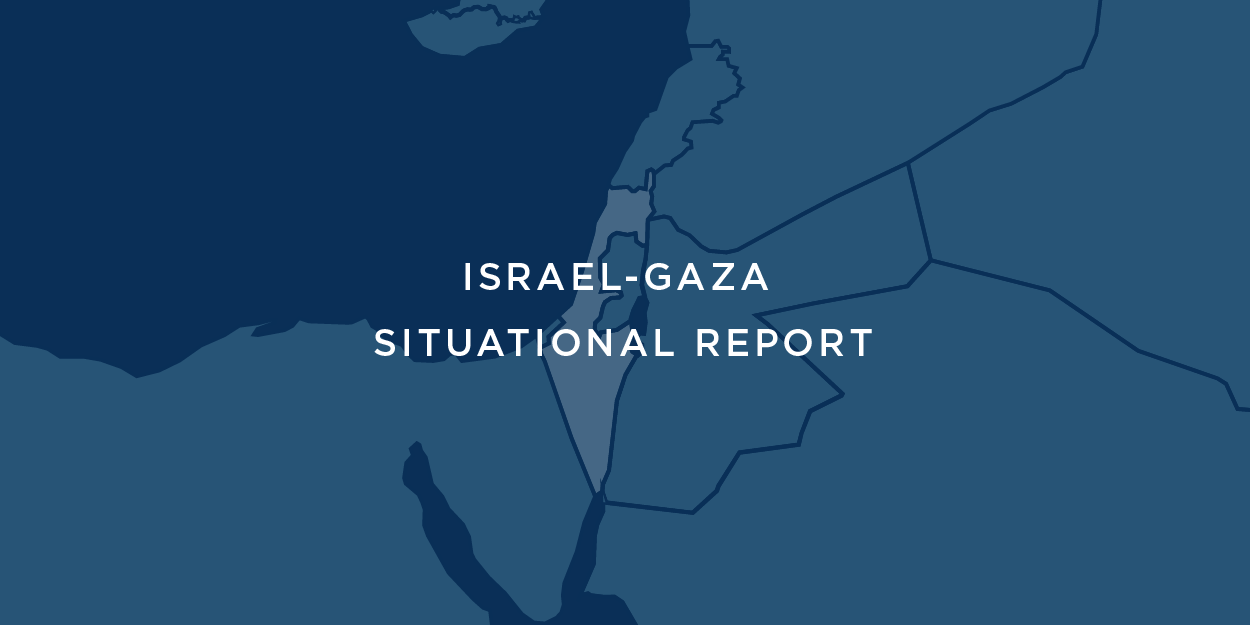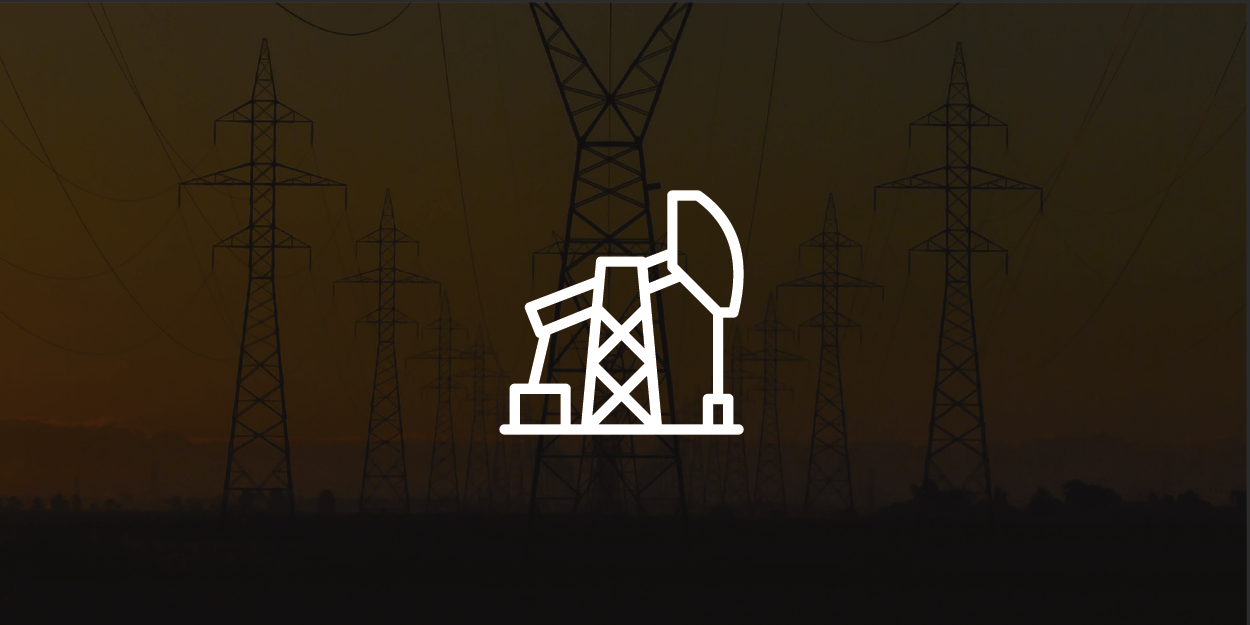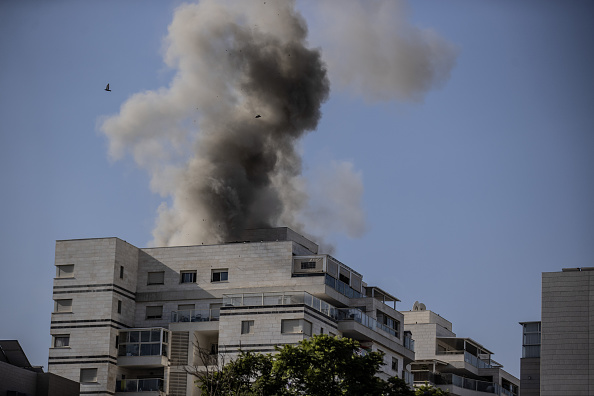Myanmar | Guyana
In Global Guardian's monthly Risk Barometer, our Intelligence Team highlights current global hotspots with the potential to impact your business operations and travels. Read below for analysis on the threats we are closely monitoring this month and click here to subscribe for regular intelligence updates.
MyanMar's Civil War Reaches Tipping Point
Myanmar’s Civil War reached a tipping point in October when rebel forces launched a surprise offensive against the military junta, taking key outposts and towns across the country. The success of this new campaign demonstrates both the overstretched nature of the regime’s forces as well as the unprecedented coordination among anti-regime factions. However, the anti-junta alliance is fragile, and raises the specter of the “day after” problem.
On 27 October, the Three Brotherhood Alliance (TBA) – consisting of the Arakan Army, the Myanmar National Democratic Alliance Army, and the Ta’ang National Liberation Army – launched a successful offensive against junta forces in the northern Shan State. The offensive saw the rebels capture several outposts and towns along a key corridor that linked the junta-controlled heartland with China. Since the start of the offensive – dubbed Operation 1027 after its start date – some 224 junta bases and seven towns have been captured. The attacks disrupted Myanmar’s two main trade arteries with China – the Mandalay-Lashi-Muse Road and the Mandalay-Lashio-Chin Shwe Haw Road. Regime control has largely collapsed in the states of Kayah and Rakhine, and the regime’s administrative apparatus withdrew from the states of Kayin and Kachin. Myanmar’s legal trade with Bangladesh, India, and, most critically, China, has been largely halted. The junta now controls less than 50 percent of Myanmar’s territory.
- Global Guardian recommends against all unnecessary travel to Myanmar.
- We recommend for firms with assets or personnel in central and or southern Myanmar to put concrete evacuation plans in place.
Background
The war in Myanmar has been active in some form since the country gained independence from the United Kingdom in 1948, making its civil war the world’s longest running ongoing conflict. In 1962, the Burmese military – the Tatmadaw – seized power and then ran the country as a centralized autocracy for the next forty-eight years. In 2010, the military experimented with political and economic reforms in a bid to retain power and invite international investment. However, Myanmar’s brief foray into democracy abruptly ended in early 2021 when the Tatmadaw launched another coup, arresting then-premier Aung San Suu Kyi and driving much of the democratically elected government into exile.
In March of 2021, pro-democracy protesters took to the streets in opposition to the coup. Police and military forces responded with live fire. Many of the protesters – largely from Myanmar’s Bamar ethnic majority – fled the ensuing political crackdown to seek refuge and training from some of the country’s ethnic paramilitaries. The ensuing clashes between the junta's security forces, the ethnic paramilitaries and the nascent People’s Defense Forces (PDFs) – comprising anti-coup dissidents – quickly escalated into a full-scale civil war. But until last month, the ethnic paramilitaries – which constitute the bulk of Myanmar’s anti-government forces, and which operate largely independently of the government in exile – were reticent to conduct offensive operations outside their own territory.
Looking Forward
The military reacted to the offensive with alarm, publicly declaring that Myanmar is in danger “of coming apart.” The junta has consistently framed itself as the only actor capable of maintaining the integrity of the country in the face of the ethnic factions’ separatist aspirations. This narrative is not unfounded. The ethnic factions and the National Unity Government (NUG) have a history of grievances dating back to the 2010’s when Aung San Suu Kyi defended the genocide of the Rohingya minority. The ethnic factions are wary of any centralized authority and if the NUG fails to develop an acceptable framework of autonomy and federalism, the alliance could break down following the loss of their mutual enemy.
Another critical unknown is Myanmar’s northern neighbor: China. Beijing thus far has been ambivalent towards the conflict. Following the offensive, Beijing made a series of pro-junta moves but it is unlikely that the offensive, more than a year in planning, had come to pass without the knowledge of China’s Ministry of State Security (MSS) intelligence service. Beijing is likely hedging its support for the junta against its interest in retaining its influence in Shan state, safeguarding its Belt and Road Initiative investments, and maintaining its access to northern Myanmar’s oil and gas infrastructure.
Operation 1027’s significance rests primarily in its demonstration of the increased political and military cohesion among the NUG, PDF, and various ethnic factions that currently control more than half the country’s territory. For the first time in the conflict, it appears more likely than not that the junta will not be able to retain control of the important population centers, trade routes, and resources it needs to legitimate its rule. Barring a significant intervention by an outside actor or the fracturing of the anti-junta alliance, the rebels have the momentum necessary to potentially take and hold major cities in Myanmar’s heartland.
Key TakeawaysThe anti-junta coalition has taken the initiative in Myanmar’s civil war and its success is snowballing into greater military efficacy. Fighting is likely to spread to previously safer areas in the country’s south and center. In order to survive, the junta requires unequivocal support from China, that so far, it appears unlikely to receive. If the junta is defeated and the NUG is installed, the potential for some level of conflict between a new Bamar majority central government and its ethnic minority allies is substantial. |
Venezuela’s referendum on Annexing Western Guyana Increases Regional Tensions
On 03 December, Venezuela held a referendum on the proposed statehood for the oil-rich Essequibo region currently governed by neighboring Guyana, raising fears that Caracas is setting the stage for annexation. The Essequibo region is the area between the Essequibo and Orinoco rivers, accounting for around two thirds of Guyana's national territory, one sixth of its population, and is key to Guyana’s vast resource wealth. While it is unclear if the referendum signals a looming invasion, it is clear that Venezuela will leverage its military superiority over neighboring Guyana to advance the regime’s interests, ultimately raising the specter of gray zone warfare in a region where the ExxonMobil-led consortium of oil companies is expected to produce 750 thousand barrels per day by 2026.
Over 95% of voters reportedly supported the proposed acquisition in Venezuela's referendum. The poll posed five questions to citizens, covering the establishment of a new state named Guayana Esequiba, offering its inhabitants Venezuelan citizenship and identity cards, and incorporating this new state into Venezuela's territorial map. The plebiscite was held just days after the International Court of Justice (ICJ) ruled on 01 December that Guyana “administers and exercises control over that area [Essequibo]," and that Venezuela must refrain from altering the status quo. Ahead of the 03 referendum, the Bolivarian (Venezuelan) Armed Forces moved close to the Northern borders with Guyana, mobilizing nearly 500,000 troops according to Brazil, who bolstered its positions in the area bordering the Essequibo region.
- Global Guardian recommends car driver and agent services for all travel to Guyana.
- We also recommend the creation of scenario-based contingency planning for all firms with assets in and/or consistent travel to Guyana.
Context
1814 – Britain acquires Essequibo through a treaty with the Netherlands.
1899 – In a three-to-two decision, an international tribunal awards Essequibo to Britain (British Guiana), a ruling never recognized by Venezuela (but Venezuela accepts the boundary in 1905).
1962 – Venezuela claims Essequibo.
2015 – ExxonMobil discovers oil in Essequibo's offshore waters, leading to a legal case between Venezuela and Guyana at the International Court of Justice (ICJ).
2018 – According to an unverified report in Brazilian newspaper O Antagonista, Brazil warns Guyana of a possible Venezuelan invasion based on intelligence that Caracas is contemplating an incursion in Guyana.
2018 – An ExxonMobil ship is harassed by a Venezuelan naval vessel off the coast of Guyana.
2021 – The Venezuelan National Assembly rejects the ICJ ruling that it has the jurisdiction to hear Guyana’s suit against Venezuela over the disputed Essequibo province. President Nicolás Maduro also vows to “reconquer” Essequibo and announced creation of new maritime territory dubbed “strategic zone of national development” in what Guyana claims to be its territorial waters and exclusive economic zone.
2023 – The United States (U.S.) broadly eases sanctions on Venezuela's oil sector in response to a deal reached between the government and opposition parties for the 2024 Venezuelan election.
Analysis
The timing of Caracas’ provocative referendum and rhetoric suggest a threefold rationale. First, with presidential elections set for next year, the referendum is a means of distracting the population on an external issue and drumming up nationalist support. Second, with America’s demand that Maduro release political prisoners and arbitrarily detained Americans, the threat of annexation or mischief at sea gives President Maduro a lever for negotiations with the U.S. Finally, with two ongoing wars – both impacting global energy security – Caracas’ believes that the U.S. is both too overstretched and too sensitive to oil price fluctuations in an election cycle to invest political capital into punishing Venezuela now.
Looking Forward
A military campaign to conquer the entirety of Essequibo would be logistically fraught, as the territory is located within the remote Amazon rain forest and Brazil sits between Venezuela and southern Essequibo. An invasion would also lead to international condemnation and would not automatically result in Venezuela’s ability to develop and exploit Guyana’s hydrocarbons. Thus, it is more likely that Caracas will adopt a gray zone approach, much like its allies in Moscow, Beijing, and Tehran; whereby it uses political and military provocations, short of full-on war to better its bargaining position.
It would be fairly easy for Venezuela to deploy a small contingent of a few hundred soldiers into Guyana to take over a few strategic locations like villages, bridges, or roads. Capturing and controlling territory in Guyana could provide Caracas with leverage, potentially enabling it to negotiate a more favorable political amnesty agreement in return for withdrawing its forces. Additionally, with its new Iranian-made missile boats, the Bolivarian Navy could harass oil exploration vessels in the territorial waters of Guyana much the same way China bullies commercial ships in the South China Sea within its “nine-dash line.” However, given China National Offshore Oil Company’s (CNOOC) 25% stake in the Exxon-led consortium, Venezuela will be constrained in its actions at sea.
Key TakeawaysWhile travel to Guyana is not in current jeopardy, we expect Venezuela to either take limited – and symbolic — military action or at least continue to issue threats of force in the coming months. Tensions will continue to rise in the lead up to next year’s presidential elections in Venezuela. This type of revisionist posturing on the part of Caracas is a feature of the current geopolitical moment. |












